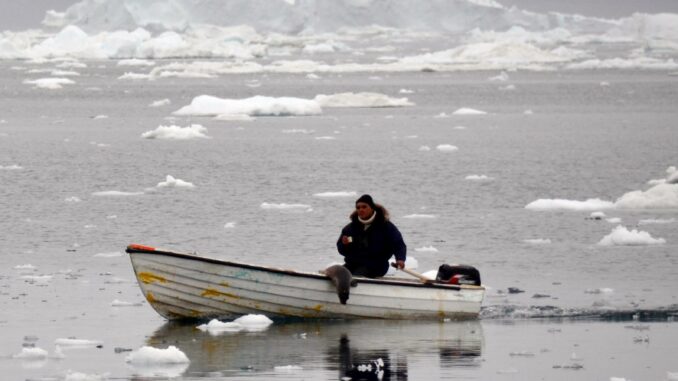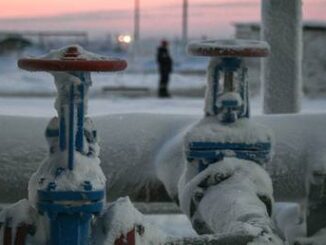
The allure of the Arctic continues to captivate imaginations with its beautiful, if sometimes forbidding, wilderness. Equally captivating to some, beneath these vast landscapes of permafrost and ice, is the economic lure of oil and gas promising economic prosperity and development. However, for the Inuit communities in Canada, Alaska and Greenland, who call this region home, securing the benefits of these resources has not been straightforward.
It has long been a popular assumption that the Inuit universally oppose oil and gas projects. However, this an inaccurate perception fed by a media that oversimplifies complex subjects and portrays dissenting voices as widely accepted viewpoints. Although preferences vary, many Inuit communities have long favored development of the region’s hydrocarbons.
Importance of Oil and Gas for Alaskan Inuit
In 2018, in the town of Utqiagvik, Alaska, the head of one of reportedly the world’s richest indigenous organization, explained the importance of oil and gas development to the region: “You see, our region is dependent upon the economy that oil and gas development brings, said Rex Rock, CEO of Arctic Slope Regional Corp.
Not only are houses in Utqiagvik powered by natural gas, the oil economy funds the city’s municipal expenses and provides the livelihoods of citizens.
This is why the Inupiat people of the North Slope, located at the northern boundary of Alaska, consistently back the region’s oil projects and, given Washington, D.C.’s hostility toward fossil fuels, have been calling for an amplified role in decision-making.
Writing in support of the North Slope’s long-delayed Willow project in a WSJ article, Inuit political leaders said, “We still live in homes that aren’t connected to running water and basic sewage systems. We have no roads connecting our communities because the federal government won’t allow us to build them. … We are tired of outside groups trying to turn this project and every other oil and gas project in our region into the poster child for a global movement away from fossil fuels.”
The Willow project is now underway, thanks to a November 2023 court ruling. The first oil is expected in 2024. The project is estimated to generate between $8 billion and $17 billion in new revenue for federal, state and local governments, including Utqiaġvik’s.
Inuits Struggle Against Canadian Government’s Arctic Moratorium
The situation is even more challenging in the Canadian Arctic. In 2016, the Canadian federal government issued a moratorium on oil and gas activities in the region. Broadcaster CBC News says political leaders in Canada’s northern provinces, including leaders of indigenous communities, “have been pushing for those restrictions to be lifted, arguing that the North needs the economic development that would come with offshore exploration and licensing.”
In August 2023, considering the requests of Inuits and Northern Provinces, the Canadian government signed a historic deal called the “Western Arctic – Tariuq Accord” with the Inuit government. Dubbed as a “first of its kind,” the deal is believed to have opened doors to increased participation of local Inuit communities in the decision-making process for oil and gas projects, paving way for the drilling to resume in this region.
According to reports of the Canadian government, the Inuit, including Métis and First Nations people, “have experienced significant disparities in the job market” and have “lower educational attainment, insufficient training, … limited access to postsecondary education, lack of affordable housing, lack of childcare.”
Is it any wonder that indigenous Canadian leaders want oil and gas projects? Apart from direct revenue sharing, likely benefits would include improved access to healthcare, education and emergency services and construction of roads, ports, and telecommunications networks. These in turn will create employment opportunities, eventually reducing socio-economic disadvantages of the Inuit.
Without a doubt, some Inuit have reservations about these projects, and their concerns will play a significant role in the collaborative decision-making process. Ultimately, the goal should be to achieve a mutually beneficial scenario, where Inuit communities desiring these economic initiatives can pursue them. Sweeping prohibitions on Arctic drilling lacks economic logic for communities favoring it.
Take the Survey at https://survey.energynewsbeat.com/
ENB Top News
ENB
Energy Dashboard
ENB Podcast
ENB Substack



